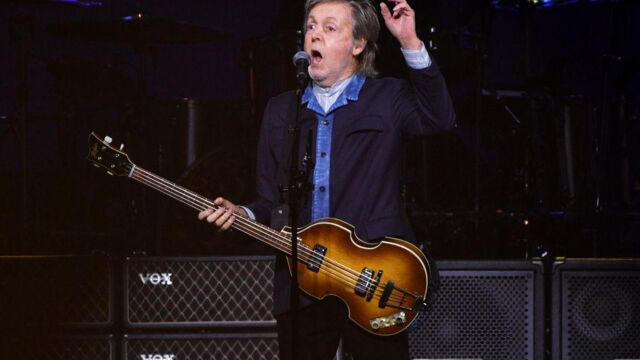A protest you can barely hear, but can’t ignore. McCartney’s new contribution to Is This What We Want? — his first fresh release in five years — is a deliberately near-silent recording pressed to vinyl later this month. The campaign, steered by composer and activist Ed Newton-Rex, targets proposed approaches to text and data mining that, artists argue, let AI learn from copyrighted music without permission or pay. McCartney, now 83 and currently touring North America, frames the risk starkly: unchecked AI could squeeze out human songwriters, especially those just starting out. The message is simple, and the format makes it impossible to miss.
Discover our latest podcast
A silent LP that makes the case for consent
Is This What We Want? gathers a roster of British music names to highlight what they see as the real cost of unlicensed AI training. Supporters include Sam Fender, Kate Bush, Hans Zimmer, the Pet Shop Boys and more, with Newton-Rex convening the effort to keep pressure on ministers.
McCartney’s track, titled “(bonus track)”, isn’t truly empty. It begins with 55 seconds of tape hiss, shifts to 15 seconds of indeterminate clicks, then returns to roughly 80 seconds of hiss with soft rustles before a brief fade. The structure nods to the mechanics of recording while saying, in effect, that taking from artists without agreement leaves little but noise.
The LP’s tracklist spells out its thesis: the UK should not enable the extraction of music for AI companies’ benefit without creators’ say. The symbolism is crystal clear — if the works that train machines are stripped from their makers without consent or compensation, what remains of original expression?
The policy stakes and the money at play
At the centre of this row is the UK’s consultation on a potential copyright exception for text and data mining with an opt-out for rightsholders. Ministers say they want to back innovation and protect creators. Yet no new legal framework will reach parliament before 2026, creating a long limbo in which deals with AI companies continue while the rules are still being drawn.
The sums are not small. The UK’s creative industries contribute about £125 billion each year to the economy. On the other side, major American tech firms have announced more than £30 billion of UK investment, much of it earmarked for data centres. That tug-of-war shapes the conversation around OpenAI, Google, Anthropic and xAI, whose systems rely on vast data access to improve.
Artists fear that, in practice, the tech lobby will be heard more loudly than the people who make the work. Newton-Rex warns of a government drifting towards the preferences of Silicon Valley at the expense of British creators. Those worries sharpened after science, innovation and technology secretary Liz Kendall appointed a special adviser who had previously argued that the biggest AI players would never be legally compelled to pay creators. The government counters that it is prioritising the interests of UK citizens and businesses, seeking a balance between AI progress and strong protections, and widening consultations across both AI and creative sectors.
Pressure is international too. From Washington, Donald Trump has urged that AI should be free to use copyrighted material without complex contracts, and warns against rules that could hinder AI firms’ operations. For British artists, that stance underscores the stakes: a global tilt toward deregulation would quickly ripple into the UK’s own policy choices.
What artists say they stand to lose
For creators such as Max Richter, the proposed direction risks impoverishing those who originate music while automating the creative act itself. It is not only a matter of money; it is also about voice and agency in how one’s work is used. Filmmaker and peer Beeban Kidron has joined the cautionary chorus, arguing for rules that put people — and their rights — at the heart of the AI economy.
Kate Bush’s question lands like a bell:
“will our voices remain inaudible?”
In other words, will human musicians be muffled in the very future their work helped to train? McCartney’s near-silent contribution gives that fear a sound — or the lack of one. The LP’s vinyl pressing is designed to travel far beyond policy papers, into living rooms and record shops, as the campaign builds towards its release later this month.
Read more:
Elvis Presley's granddaughter is his twin: Everything to know about his grandchildren
Woman lies to husband about working late—then he sees who’s in car
Where is Yoko Ono now? John Lennon’s widow is living in peace on a 600-acre farm at 92
Sources used:
Paul McCartney joins music industry protest against AI with silent track















